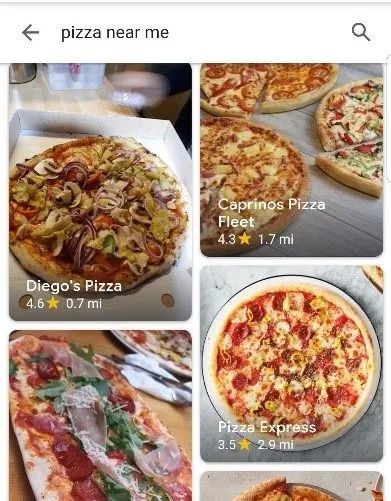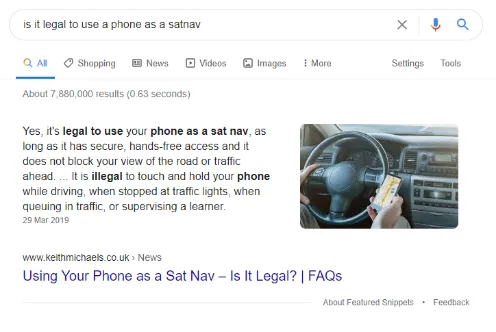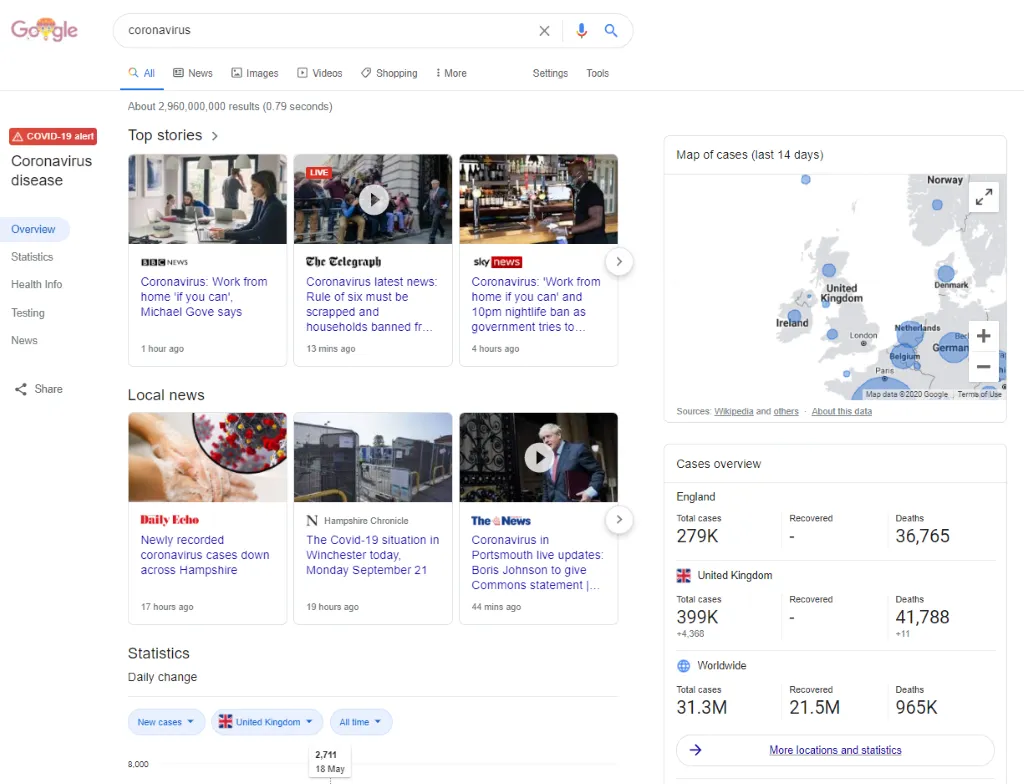It’s no secret Google likes to change up its search engine results pages – in fact it’s common to see experiments being tested frequently. Whether it’s to adapt to the changing ways users are searching or to increase click through on their ads, one thing’s for sure – when it comes to SEO, we need to evolve to keep up.
Most significantly in 2020 came the unfortunate, devastating arrival of the Coronavirus pandemic, which led to some reactive changes on Google’s part to ensure users are getting the most up-to-date, accurate and clear information online with regards to the subject. Take a deep dive into what has changed this year and how you can adapt to keep your website visible in search.
Late 2019
Personalised Google Shopping recommendations
In the US, the new Google shopping interface has landed, namely to compete with Amazon. Users will now be able to browse recommendations based on their shopping history and search history. They will then have the option to buy online or locally in-store (if supported).
‘Buy on Google’ is now an option to check-out shopping,
highlighted by prominent shopping cart icons. Users will be able to pay with
payment information stored on their Google accounts.
Initially debuted in France, it’s only a matter of time before it arrives in the
UK.

Google local ‘search by photos’ option
A new ‘search by photos’ option has appeared in some local search results on mobile devices. For instance, ‘pizza near me’.
This option has no fixed position in SERPs, but appears to always be below the local pack in the search results.
This functionality allows you to scroll through photos of local businesses, and works particularly well for products that rely on aesthetics and reviews to encourage click through. In instances where good visuals are not necessarily important, the option does not show – for instance for local plumbers.
When a user does click through, they are taken to the business’s Google My Business profile

January 2020

Black Ad Labels & URLs Come to Desktop Search
In May 2019, Google rolled out a new look for mobile SERPs. For ads, we saw the arrival of black ‘Ad’ labels over the staple green. This helped Google’s ads blend in to organic results more than ever, and it’s certainly not the first time Google has made changes to aid this.
In line with the Ad label changes, green URLs also disappeared and were replaced with black URLs at the top of the result.
For organic results, we saw the arrival of favicons (website/URL icons), placed in the same location as Ad labels.
Moving forward into January 2020, we saw these changes start to appear on the desktop version of Google’s search results. With black ad labels appearing for Google Ads, and black URLs and favicons appearing for organic results.
Shortly after this was launched, Google experimented with the removal of favicons in Google desktop search, and decided to move this permanently – keeping favicons to mobile search results only.
Featured Snippets No Longer Have a Repeat Listing in Results
In early 2020, Google announced that it would be ‘decluttering’ its first page of results by removing the duplicate regular result of a featured snippet. This meant that if you were fortunate enough to have achieved the featured snippet of a search term, you would no longer find the normal organic result underneath.

March 2020
Right-Sidebar Featured Snippets Removed
The right-sidebar variant of featured snippets was removed in March 202019. From this date onwards, Google has placed them in the main results column. This was a part of the move following the deduplication of featured snippets in search results.
Google Coronavirus Results
As you already know, 2020 has unfortunately been synonymous with one thing in particular – Coronavirus. Therefore, it’s no surprise that Google responded accordingly with its search results. And it needed to – after all, where’s the first place people go for information today? People trust Google’s answers, therefore it needed to ensure it provided the most accurate, up-to-date information.
Google’s desktop and mobile search results quickly adapted to provide a dashboard of information surrounding Coronavirus; this includes ‘Top Stories’, ‘Map of cases’, ‘Local News’, and ‘Health Information’ covering symptoms, prevention and treatments information from the NHS.

Option to Mark Businesses as ‘Temporarily Closed’ Made Available
Google Maps and Google Search began to start showing whether a business is temporarily closed in response to the Coronavirus pandemic. An option was made available to users within Google My Business to allow them to mark their business as temporarily closed, alongside the usual ‘Permanently Closed’ option.
April 2020
Google Search Tips
In April, Google introduced a new feature that aims to help users rephrase their query when the search engine cannot find the relevant results on the web.
According to a Google spokesperson, this message is said to only appear for a ‘fairly small proportion of queries’. The message gives you a tips on how to achieve better results – namely by simplifying and making your queries more to the point, as you can see in the example below.

Instances of Featured Snippets Not in 1st Position
There appeared to be an update in April whereby featured snippets were being spotted lower down in the organic results (around 2nd or 3rd position), not necessarily at the top of the SERPs. However, these appeared to display for only a very specific type of queries and had similar features to Knowledge Panels.
Now, later on in 2020, it has been difficult to replicate these, leading us to believe these are no longer being used.
May 2020
Announcement – AMP Won’t Be Required for Top Stories in 2021
Alongside the Page Experience update announcement, Google announced in May that AMP (Accelerated Mobile Pages) would no longer be a requirement to get a place in Google’s Top Stories section on mobile. This change won’t come into effect until 2021 when the Page Experience Update goes live.
Google Suggestions Based on Users’ Recent Activity
Google began to display suggestions for search based on your recent activity. An example provided by Search Engine Land was ‘Disney’, where Google suggested a search of ‘disney streaming’. This was because a previous search was performed for ‘streaming services’.
It’s appears that users needed to be logged into their own Google accounts for this to appear. However, later on in 2020, we are not able to replicate this in the SERPs.
August 2020
Home Activities Rich Results Made Available
A new Rich Result was made available in August to correspond to home activities and events. Currently restricted to fitness related terms, this rich result has been made accessible in response to Coronavirus with more people attending events and classes online.
September 2020
Further Attributes Added to Google My Business Listings
Google My Business listings now allow business owners to highlight the efforts being taken to keep visitors/customers safe with additional attributes. including:
- Appointment required
- Mask required
- Staff wear masks
- Staff get temperature checks
- Temperature check required
Why you should care
Google is constantly changing the way it serves its results, as well as the experience it delivers to its users. This in itself reflects the importance of consistently adapting when it comes to SEO. You may think optimising your meta once means you’re all set, or setting up a Google My Business profile and never logging on again is enough – but it really isn’t. That is, if you want to remain visible in search.
Complacency is the enemy. It’s important to stay one step ahead of Google’s updates, and be open and prepared for change. If you don’t, your competitors will. Before you know it, your business will have disappeared into the background.
Today, simply updating your content isn’t enough. As Google introduces more options for enhancing your results, technical SEO is more important than ever.
Google wants to blur the lines between organic and paid search with Google Ads becoming more subtle every year. The more clicks Google Ads get, the more valuable they become, increasing Google’s earning potential.
With more Google Ads, featured snippets showing more frequently, and new types of structured data markup being introduced every year, we see a bog-standard result becoming a thing of the past.
Adapt… or be invisible
Today, PPC should be considered a normal part of your inbound marketing mix to ensure you remain visible in the ever-changing SERPs. No matter how good your organic SEO is, today, there’s so much for users to explore at the top of the search engine results that you need to cover all bases.
However, it’s worth remembering Google can only push things so far before they get push back. It’s happened before, with Google being handed a record-breaking £2.14bn fine for abusing its dominance of the search engine market in building its online shopping service.
Adapting but still not being found?
If your website is lost in the SERPs, we can help. Get in touch today and speak to one of our SEO experts – we’ll get you found in no time.






